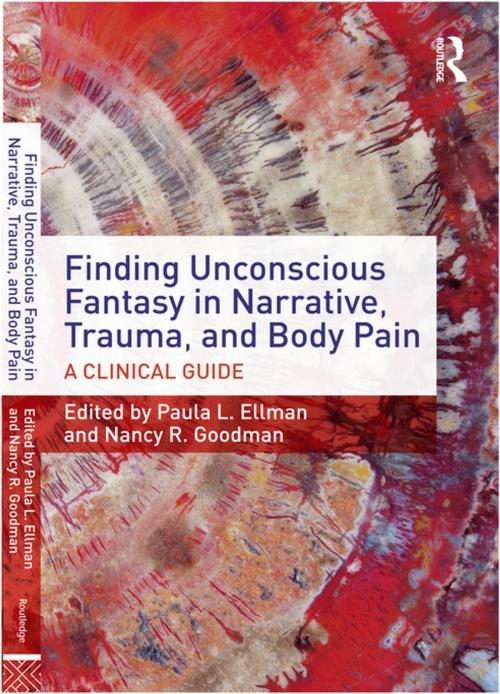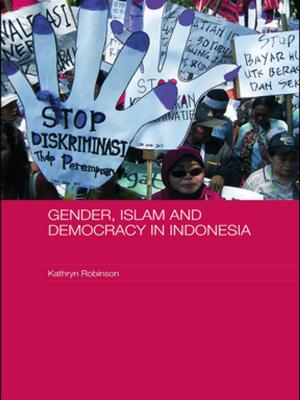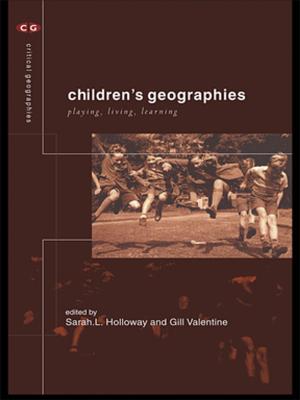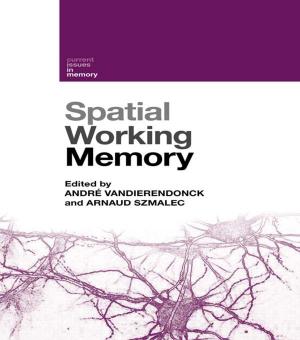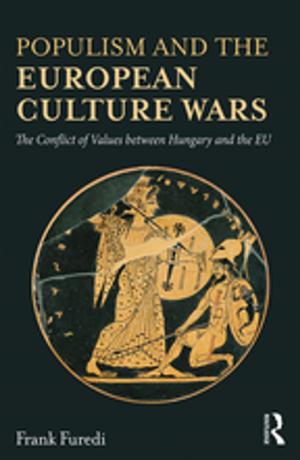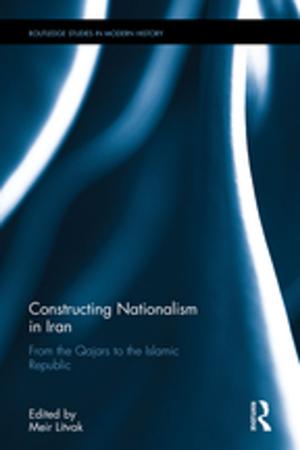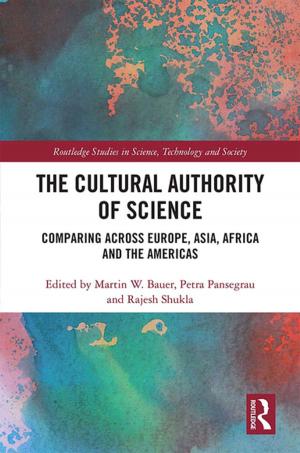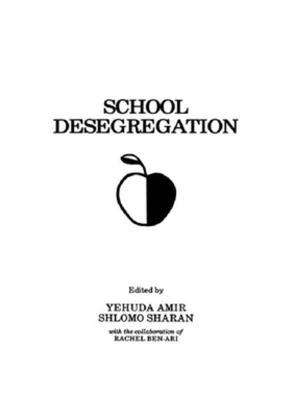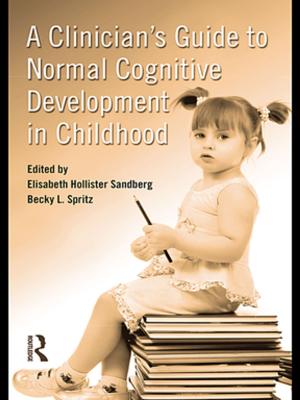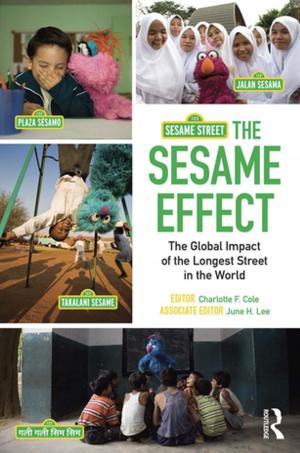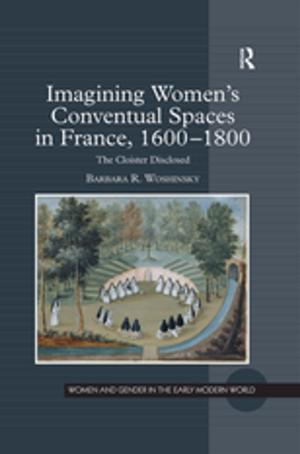Finding Unconscious Fantasy in Narrative, Trauma, and Body Pain
A Clinical Guide
Nonfiction, Health & Well Being, Psychology, Psychoanalysis, Mental Health| Author: | ISBN: | 9781317355694 | |
| Publisher: | Taylor and Francis | Publication: | June 26, 2017 |
| Imprint: | Routledge | Language: | English |
| Author: | |
| ISBN: | 9781317355694 |
| Publisher: | Taylor and Francis |
| Publication: | June 26, 2017 |
| Imprint: | Routledge |
| Language: | English |
Finding Unconscious Fantasy in Narrative, Trauma, and Body Pain: A Clinical Guide demonstrates that the concept of the unconscious is profoundly relevant for understanding the mind, psychic pain, and traumatic human suffering. Editors Paula L. Ellman and Nancy R. Goodman established this book to discover how symbolization takes place through the "finding of unconscious fantasy" in ways that mend the historic split between trauma and fantasy. Cases present the dramatic encounters between patient and therapist when confronting discovery of the unconscious in the presence of trauma and body pain, along with narrative.
Unconscious fantasy has a central role in both clinical and theoretical psychoanalysis. This volume is a guide to the workings of the dyad and the therapeutic action of "finding" unconscious meanings. Staying close to the clinical engagement of analyst and patient shows the transformative nature of the "finding" process as the dyad works with all aspects of the unconscious mind. Finding Unconscious Fantasy in Narrative, Trauma, and Body Pain: A Clinical Guide uses the immediacy of clinical material to show how trauma becomes known in the "here and now" of enactment processes and accompanies the more symbolized narratives of transference and countertransference. This book features contributions from a rich variety of theoretical traditions illustrating working models including Klein, Arlow, and Bion and from leaders in the fields of narrative, trauma, and psychosomatics. Whether working with narrative, trauma or body pain, unconscious fantasy may seem out of reach. Attending to the analyst/ patient process of finding the derivatives of unconscious fantasy offers a potent roadmap for the way psychoanalytic engagement uncovers deep layers of the mind.
In focusing on the places of trauma and psychosomatic concreteness, along with narrative, Finding Unconscious Fantasy in Narrative, Trauma, and Body Pain: A Clinical Guide shows the vitality of "finding" unconscious fantasy and its effect in initiating a symbolizing process. Chapters in this book bring to life the sufferings and capacities of individual patients with actual verbatim process material demonstrating how therapists and patients discover and uncover the derivatives of unconscious fantasy. Finding the unconscious meanings in states of trauma, body expressions, and transference/countertransference enactments becomes part of the therapeutic dialogue between therapists and patients unraveling symptoms and allowing transformations. Learning how therapeutic work progresses to uncover unconscious fantasy will benefit all therapists and students of psychoanalysis and psychoanalytic psychotherapy interested to know more about the psychoanalytic dialogue.
Finding Unconscious Fantasy in Narrative, Trauma, and Body Pain: A Clinical Guide demonstrates that the concept of the unconscious is profoundly relevant for understanding the mind, psychic pain, and traumatic human suffering. Editors Paula L. Ellman and Nancy R. Goodman established this book to discover how symbolization takes place through the "finding of unconscious fantasy" in ways that mend the historic split between trauma and fantasy. Cases present the dramatic encounters between patient and therapist when confronting discovery of the unconscious in the presence of trauma and body pain, along with narrative.
Unconscious fantasy has a central role in both clinical and theoretical psychoanalysis. This volume is a guide to the workings of the dyad and the therapeutic action of "finding" unconscious meanings. Staying close to the clinical engagement of analyst and patient shows the transformative nature of the "finding" process as the dyad works with all aspects of the unconscious mind. Finding Unconscious Fantasy in Narrative, Trauma, and Body Pain: A Clinical Guide uses the immediacy of clinical material to show how trauma becomes known in the "here and now" of enactment processes and accompanies the more symbolized narratives of transference and countertransference. This book features contributions from a rich variety of theoretical traditions illustrating working models including Klein, Arlow, and Bion and from leaders in the fields of narrative, trauma, and psychosomatics. Whether working with narrative, trauma or body pain, unconscious fantasy may seem out of reach. Attending to the analyst/ patient process of finding the derivatives of unconscious fantasy offers a potent roadmap for the way psychoanalytic engagement uncovers deep layers of the mind.
In focusing on the places of trauma and psychosomatic concreteness, along with narrative, Finding Unconscious Fantasy in Narrative, Trauma, and Body Pain: A Clinical Guide shows the vitality of "finding" unconscious fantasy and its effect in initiating a symbolizing process. Chapters in this book bring to life the sufferings and capacities of individual patients with actual verbatim process material demonstrating how therapists and patients discover and uncover the derivatives of unconscious fantasy. Finding the unconscious meanings in states of trauma, body expressions, and transference/countertransference enactments becomes part of the therapeutic dialogue between therapists and patients unraveling symptoms and allowing transformations. Learning how therapeutic work progresses to uncover unconscious fantasy will benefit all therapists and students of psychoanalysis and psychoanalytic psychotherapy interested to know more about the psychoanalytic dialogue.
